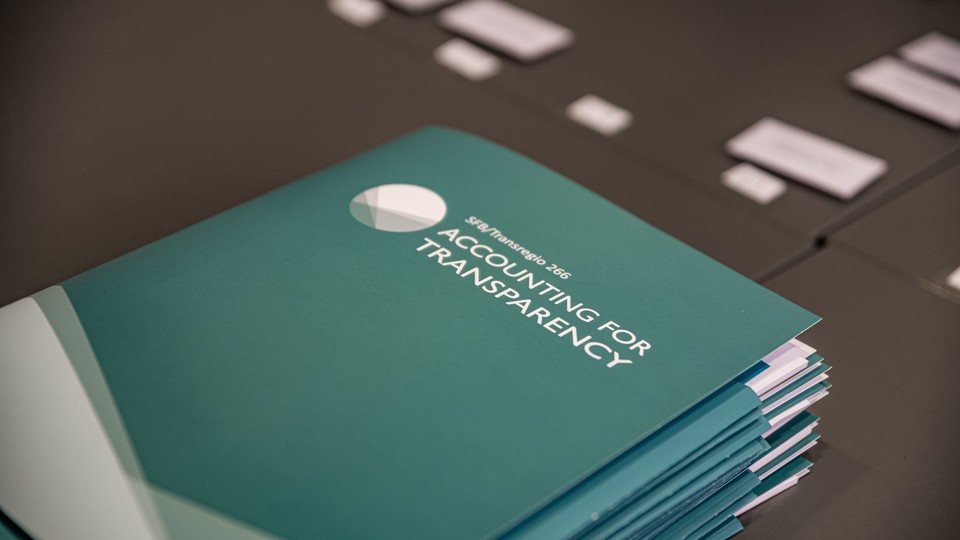The GBP December Monitor Shows That Companies Face Higher Costs

Since the end of September, the German Business Panel at the University of Mannheim has also asked the panel participants about the specific burdens they have due to the pandemic and the measures implemented to curb the spread of the virus. Companies currently have to deal with additional financial burdens due to the absence of sick employees, supply chain problems, investments in hygiene measures and digitalization issues.
At the end of November, when the 3G rule for workplaces was implemented and the federal government imposed additional coronavirus measures, some of these issues became even more burdensome. The share of companies reporting financial burdens due to investments in hygiene measures has increased to 47 percent. This is 10 percentage points higher than in the previous week. National and international supply chain problems continue to exist and are becoming a financial burden for more and more companies: The share has risen from 32 to 40 percent. However, the share of companies reporting financial burdens due to digitalization issues and the absence of sick employees has remained roughly the same.
Again, it becomes clear that the current pandemic situation heavily affects the companies’ general economic situation. “The pandemic situation is worsening and there are still supply chain issues. This leads to a high level of insecurity which seems to bring the growth that we have experienced since spring 2021 to a halt”, summarizes Professor Dr. Jannis Bischof when looking at the development of turnovers, profits and investments. Bischof holds the Chair of Business Administration and Accounting of the University of Mannheim and is project manager of the GBP. “It is particularly striking that investments are declining. Although they are still growing, we see a significant change in November, as the rate has declined from +8.54 to +2.55 percent”, Bischof says.
Due to the current developments, the companies are also less satisfied with the coronavirus measures taken by the government. Since August 2021 already, the companies’ satisfaction with the general economic policy has been rated as a 4 on a scale from 0 to 10. Until late fall, the companies’ satisfaction with the coronavirus measures has been rated almost a point higher than their satisfaction with the general economic policy. Now, this has changed. “We observe that the companies’ satisfaction with the coronavirus measures taken by the government has declined considerably and continuously during the fourth wave of infections. Looming restrictions and a decline in turnovers are a heavy burden on the companies”, Dr. Davud Rostam-Afschar, the academic manager of the GBP.
The complete report on company trends in December 2021 (“GBP Monitor: Unternehmenstrends im Dezember 2021”) can be found here: https://www.accounting-for-transparency.de/wp-content/uploads/2021/12/gbp_monitor_2021_12_web.pdf
Further information on the GBP monitoring report
The German Business Panel interviews more than 800 companies per month on the economic situation in Germany and collects data on 1) any expected changes in revenue, profit, and investments, 2) economic decisions, 3) the expected default probability in the sector and 4) the satisfaction with the economic policy. Furthermore, the GBP reports about one current question per month.
Background information on the German Business Panel
The German Business Panel is the long-term survey panel of the trans-regional project “Accounting for Transparency“ (www.accounting-for-transparency.de).
The Collaborative Research Centre (CRC) “TRR 266 Accounting for Transparency“ started in July 2019 and is funded by the German Research Foundation (DFG) for four years. It is the first CRC with a focus on business administration. Approx. 80 researchers are involved in the CRC from the following nine universities: Paderborn University (host university), Humboldt-Universität zu Berlin, University of Mannheim, Ludwig-Maximilians-Universität München, ESMT Berlin, Frankfurt School of Finance & Management, Goethe University Frankfurt am Main, WHU – Otto Beisheim School of Management and the Carl von Ossietzky University of Oldenburg. The researchers examine how accounting and taxation affect the transparency of companies and how regulation and firm transparency impact our economy and society. The CRC is funded with approx. 12 million euros.
